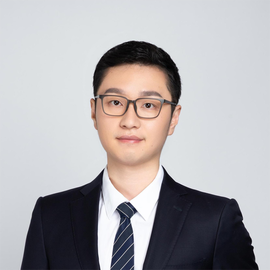Abstract
This paper develops the resource theory of asymmetric distinguishability for quantum channels, generalizing the related resource theory for states [arXiv:1006.0302, arXiv:1905.11629]. The key constituents of the channel resource theory are quantum channel boxes, consisting of a pair of quantum channels, which can be manipulated for free by means of an arbitrary quantum superchannel (the most general physical transformation of a quantum channel). One main question of the resource theory is the approximate channel box transformation problem, in which the goal is to transform an initial channel box (or boxes) to a final channel box (or boxes), while allowing for an asymmetric error in the transformation. The channel resource theory is richer than its counterpart for states because there is a wider variety of ways in which this question can be framed, either in the one-shot or -shot regimes, with the latter having parallel and sequential variants. As in [arXiv:1905.11629], we consider two special cases of the general channel box transformation problem, known as distinguishability distillation and dilution. For the one-shot case, we find that the optimal values of the various tasks are equal to the non-smooth or smooth channel min- or max-relative entropies, thus endowing all of these quantities with operational interpretations. In the asymptotic sequential setting, we prove that the exact distinguishability cost is equal to channel max-relative entropy and the distillable distinguishability is equal to the amortized channel relative entropy of [arXiv:1808.01498]. This latter result can also be understood as a solution to Stein’s lemma for quantum channels in the sequential setting. Finally, the theory simplifies significantly for environment-seizable and classical–quantum channel boxes.
Publication
Physical Review Research

Associate Professor
Prof. Xin Wang founded the QuAIR lab at HKUST(Guangzhou) in June 2023. His research primarily focuses on better understanding the limits of information processing with quantum systems and the power of quantum artificial intelligence. Prior to establishing the QuAIR lab, Prof. Wang was a Staff Researcher at the Institute for Quantum Computing at Baidu Research, where he concentrated on quantum computing research and the development of the Baidu Quantum Platform. Notably, he spearheaded the development of Paddle Quantum, a Python library designed for quantum machine learning. From 2018 to 2019, Prof. Wang held the position of Hartree Postdoctoral Fellow at the Joint Center for Quantum Information and Computer Science (QuICS) at the University of Maryland, College Park. He earned his doctorate in quantum information from the University of Technology Sydney in 2018, under the guidance of Prof. Runyao Duan and Prof. Andreas Winter. In 2014, Prof. Wang obtained his B.S. in mathematics (with Wu Yuzhang Honor) from Sichuan University.